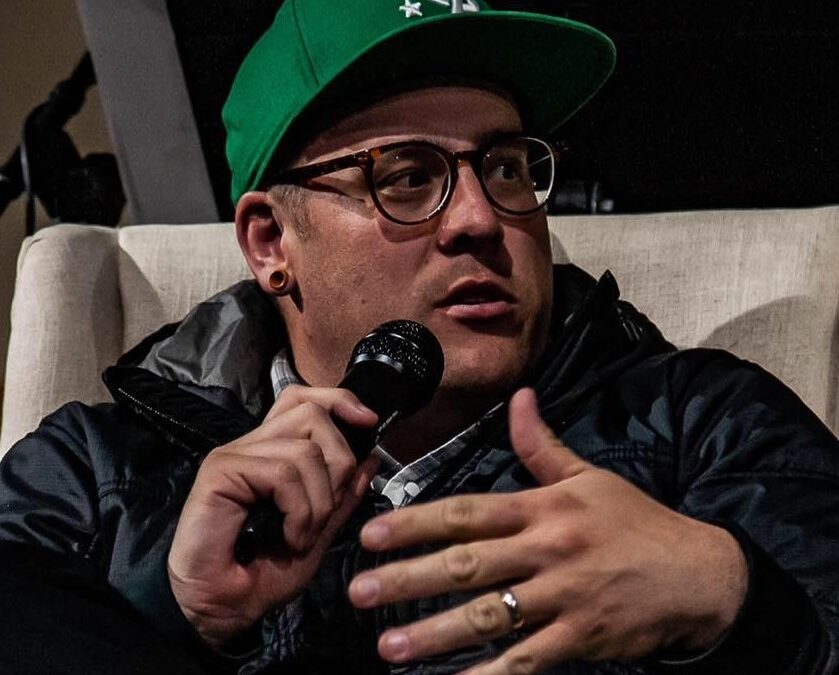I love what James K. A. Smith writes here:
“I will argue that the postmodern church could do nothing better than be ancient, that the most powerful way to reach a postmodern world is by recovering tradition, and that the most effective means of discipleship is found in liturgy.” (Who’s Afraid of Postmodernism?)
According to Smith, postmodernism calls the church to embrace the historic and ancient faith of our fathers. I see several things that would be a “recovering of tradition” for us to consider:
- The public reading of Scripture.
- Along with the singing of modern songs, hymns, and spiritual songs, the church should make use of historic songs, hymns, and spiritual songs. This includes both the ancient songs of God’s people, such as the Psalms, or of songs written during the Patristics through the Reformation.
- Public prayer.
- A more central role of the Eucharist in our worship liturgy (w/ emphasis on the Reformed Spiritual Presence view!).
- Prayer for healing, per James 5:14-15.
What would you add to this list of “ancient practices”?

Luke is a pastor-theologian living in northern California, serving as a co-lead pastor with his life, Dawn, at the Red Bluff Vineyard. Father of five amazing kids, when Luke isn’t hanging with his family, reading or writing theology, he moonlights as a fly fishing guide for Confluence Outfitters. He blogs regularly at LukeGeraty.com and regularly contributes to his YouTube channel.


I <3 that simple list. I've been listening a lot to Trinity Anglican Mission in Atlanta, GA in large part b/c they often include the reading of scriptures in their podcast, and I just like to be bathed in the Words coming from their varied readers' voices. I also think that we can miss out on some richness in worship by sticking only to the simple, trending songs.
Luke, I have advocated these kinds of things to my
students for years. Unfortunately, teachers of theology don’t always
have the ear of the contemporary church. All of these practices would salt our
worship with the word of God and wisdom. However, Jamie is arguing for the
substitution of liturgy for discipleship, in my opinion. While I applaud the
return to a “paleo-“orthodoxy as an antidote to the Modern experiment and Kant’s
embargo, Radical Orthodoxy appears to slight the knowledge of Scripture and the
concept of deep inward transformation that results in a lifestyle characterized
by the fruit of the Spirit in favor of a return to a Christianity wholly
bounded and constrained within the precinct of the “sanctuary.” I think a
return to a more intentional liturgical manner of worship, perhaps even the
creation of a “sacred space,” would be a wonderful counter-agent to the autonomous,
free-form, emotional chaos of much of contemporary worship. I have friends who
– coming out of Pentecostalism – enthusiastically embrace what they call “full body”
worship, all the smells and bells. But, I believe, a liturgy works only for
those who are being discipled (not just catechized) outside of the liturgy. The
liturgy is too formulaic to teach those things that must be emphasized to new
Christians, and necessary to renew old wineskins like me. Yes, we see a
reflection, we partake of a portion (have koinonia) of these things in the liturgy, but there is not enough here to sustain more than a “least common denominator” Christianity. It seems to substitute a kind of rote routine for the evils of rationalism, rather than expanding the concept of discipleship to include heart, mind, soul, and strength. Okay, poke me full of holes.
James,
Only thing that jumps out at me is this: as I’m reading Smith, I don’t see him calling to replace discipleship with liturgy. I see him calling for liturgy to be seen as a formative aspect of discipleship.
I should also add that I generally interpret any and all talk about “liturgy” through my lens of “everyone-has-a-liturgy” and “there’s-a-way-to-have-spontaneity-in-liturgy” and “liturgical-praxis-can-be-a-bit-more-creative-than-that-found-in-some-Catholic-and-Lutheran-churches.” 🙂
So when I read James calling for formative liturgical practices, I read that as a call to incorporate the basic “meat and potatoes” of the historic church, while being aware of the fact that it often needs to be contextualized and that it’s okay to incorporate other creative elements.
But I think you are right about a lot of people who advocate liturgy. Some seem to think that liturgy is magical and will do everything for us so that we don’t have to be caught up in the actual practice of making disciples. Great point!